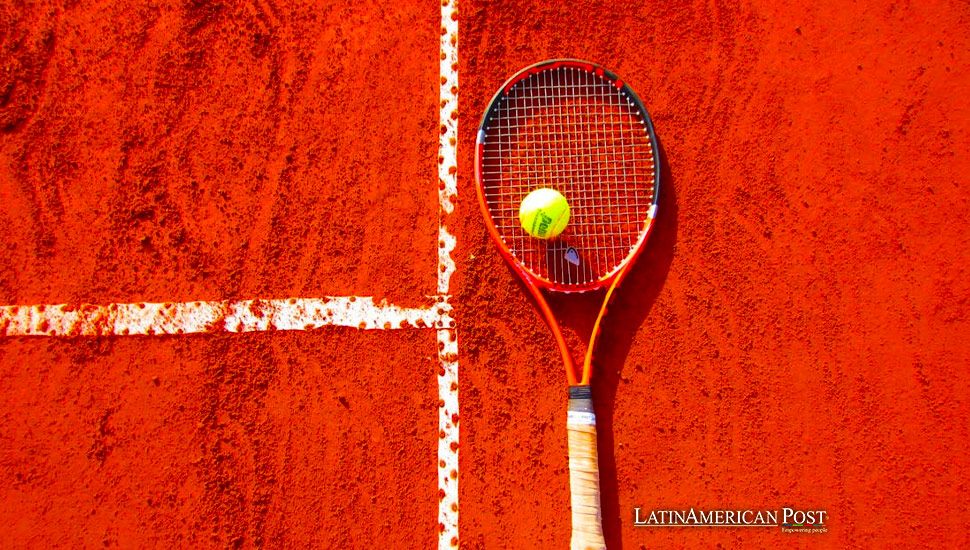Brazilian Tennis Umpire Suspended for Corruption and Betting Violations

The integrity of sports is under scrutiny as Brazilian umpire Antonio Casa faces a multi-year suspension for corruption, echoing concerns over fairness in Latin American athletics.
The sports world was rattled by the recent announcement from the International Tennis Integrity Agency (ITIA) that Brazilian umpire Antonio Casa has been handed a hefty seven-year and six-month ban from tennis. His suspension, which arises from admitted corruption and betting-related offenses, casts a long shadow over tennis and the broader landscape of sports in Latin America, where the specter of corruption has too often taken center stage.
Challenges of Integrity in Latin American Sports
Casa’s admission to seven violations of the Tennis Anti-Corruption Program (TACP) paints a troubling picture of the pressures and temptations that can lead officials astray. His actions, including attempts at corruption, manipulation of match scoring, and facilitating betting, have marred his career and tainted the fair play spirit that is integral to athletics. Moreover, the ITIA’s imposition of an $8,000 fine with an additional suspended penalty underscores the gravity with which the sports community views such transgressions.
This scandal is far from an isolated incident within Latin American sports. Indeed, the region has witnessed a series of integrity breaches across various disciplines, prompting fans and officials alike to call for increased vigilance and stringent enforcement of ethical standards.
The dark cloud of match-fixing and undue influence has long loomed over Latin American football, the region’s most beloved sport. Refereeing controversies have marred national leagues and international tournaments alike. High-profile incidents, such as the resignation of the entire refereeing committee of the Ecuadorian Football Federation amidst allegations of bribery in 2018, reflect systemic issues that plague the game.
Boxing’s Scrutiny
In another notable case, the Argentine Football Association was rocked by scandal in 2011 when it was revealed that several matches in the Primera B Nacional, the second division of Argentine football, were investigated for possible match-fixing. These scandals, which echo Casa’s breach of trust, serve as cautionary tales highlighting sports officials’ susceptibility to corruption.
Beyond the football pitch, the specter of corruption has also infiltrated other sports. Boxing, for instance, has been subject to scrutiny, with several bouts involving Latin American fighters raising eyebrows due to questionable judging decisions. The complex interplay of promoters, sanctioning bodies, and betting interests has often cast doubt on the integrity of the sport’s outcomes.
The implications of these breaches extend far beyond the playing fields and courts. They undermine public trust and diminish the role of sports as a symbol of fair competition and meritocracy. For many in Latin America, where sports can signify hope and escape from social and economic challenges, the notion that the playing field is skewed by corruption is particularly disheartening.
The fight against such corruption has become a focal point for sports federations and integrity bodies across the continent. Measures are being implemented to bolster officials’ education, enhance the transparency of decision-making processes, and fortify the mechanisms by which ethical violations are reported and punished.
Yet, these steps face the daunting challenge of dismantling a culture of impunity that has sometimes allowed corruption to fester within the ranks of sports institutions. Casa’s case and those before him rally for a redoubling of efforts, emphasizing the need for vigilance and systemic change.
The Importance of Integrity
As Latin America continues to produce world-class athletes and host mega-events, the responsibility to protect the integrity of sports has never been more critical. With global attention often focused on the region’s dynamic sports scene, there is an opportunity and an obligation to set an example of uncompromising ethical standards.
The road to reclaiming trust is fraught with obstacles, yet it is a journey that must be embarked upon with determination. For every scandal that emerges, there is a lesson to be learned and a resolve to be strengthened. The ultimate goal is to foster an environment where sportsmanship and fair play are not a mere ideal but an everyday reality.
Antonio Casa’s suspension serves as a sobering reminder of the work ahead. It’s a wake-up call for sports bodies, athletes, officials, and fans to unite in pursuing integrity. The message is clear: corruption has no place in sports, and those who violate this principle will face the consequences of their actions.
In the aftermath of such scandals, the Latin American sports community must reflect on the values that define it. The love of the game, the pursuit of excellence, and the spirit of competition are the cornerstones upon which the region’s rich athletic heritage is built.
Safeguarding Sports Integrity
The message resonates beyond tennis courts and football stadiums as the ITIA and similar organizations strive to safeguard these values. It speaks to the heart of what sports mean to people in Latin America and worldwide — a fair chance, a level playing field, and the integrity that underpins the thrill of the game.
Also read: Pelé and Maradona’s Secret Meeting In Brazil
The legacy of Antonio Casa and others implicated in sports corruption must not be cynicism and disillusionment. Instead, their stories should galvanize a movement toward transparency, accountability, and a renewed commitment to the true spirit of competition. In the end, the integrity of sports is not solely the concern of those who govern them but of everyone who believes in the power of sports to inspire, unite, and embody the best of human potential.





